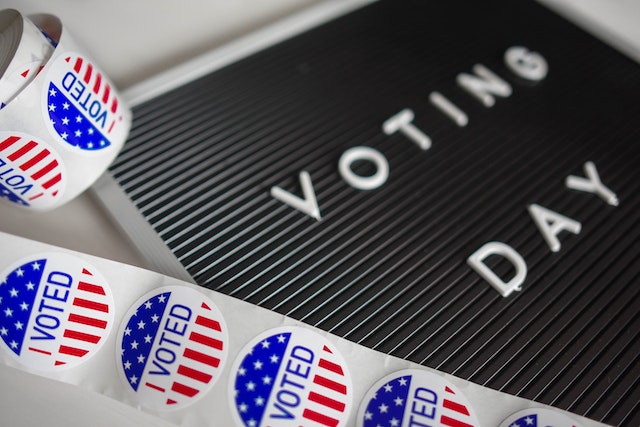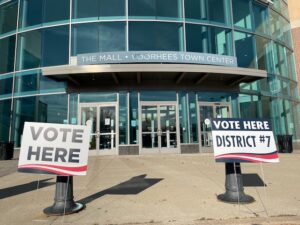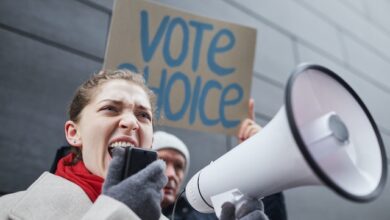What should be considered when voting in elections? 5 important issues to consider before you cast your vote.
5 important issues to consider before you cast your vote.

Elections are the cornerstone of any democratic society, giving citizens the power to choose their leaders and shape the future of their country.
However, with so much at stake, it can be overwhelming to decide on who to vote for. That’s why it’s crucial to carefully consider important issues before casting your ballot.
In this blog post, we’ll explore five essential factors that should be taken into account when voting in elections – from voter fraud and poverty rates to education levels and more. So grab a cup of coffee and let’s dive in!
The Importance of Voting
Voting is a fundamental right and duty of every citizen in a democratic society. It allows people to have a say in who governs them, the policies that are implemented, and how their country operates. By casting your vote, you are contributing to the collective voice of your community and helping to shape its future.
Voting is not only important for individuals but also for society as a whole. When more people participate in elections, it leads to greater representation and legitimacy for the elected government. This can result in better decision-making processes that reflect the needs of all citizens.
Moreover, voting provides an opportunity for marginalized groups to have their voices heard and make meaningful changes within their communities. Through voting, individuals can hold those in power accountable for their actions or lack thereof.
By participating in elections regularly, people strengthen democracy itself – creating an environment where open discussion, political diversity and peaceful transitions of power become possible over time.

The Electoral Process
The electoral process is the cornerstone of democracy. It ensures that the voice of the people is heard and that leaders are chosen to represent their interests. The process starts with voter registration, which allows eligible citizens to participate in elections.
Once registered, voters receive information about candidates and vote at designated polling stations on election day. This may include electronic or paper ballots, depending on local regulations.
Elections are typically overseen by independent bodies like electoral commissions or boards to ensure fairness and transparency. These organizations monitor campaigns for violations such as fraud or misconduct, investigate complaints from voters, and ultimately certify election results.
While some countries hold regular elections every few years, others only hold them periodically or in response to specific events like a change in government or constitutional amendments.
Regardless of when they occur, free and fair elections are essential for maintaining democratic societies where citizens can have confidence in their leaders’ legitimacy.

The Right to Vote
The right to vote is a fundamental principle of democracy. It gives citizens the power to have a say in who leads their country and what policies are put into place. However, this wasn’t always the case.
Throughout history, many groups have been denied the right to vote based on factors such as race, gender, and social status. In some countries, voting is still restricted or heavily regulated.
The struggle for suffrage has led to significant changes in laws around the world. Women’s suffrage movements were successful in gaining women’s right to vote while other marginalized communities continue fighting for equal access to political participation.
Nowadays, it’s important that we exercise our right to vote because it allows us to shape our future by electing leaders who represent our values and beliefs. By casting our ballots at every election cycle – be it local or national – we can ensure that those holding office are accountable and responsive towards their constituents’ interests.
Exercising your right to vote is an essential component of being an active citizen within a democratic society. Everyone should take advantage of this opportunity since having a voice matters now more than ever before!

Voter Fraud
Voter fraud is an issue that has plagued elections for a long time. It refers to any illegal activity aimed at manipulating the results of an election. Voter fraud can take many forms, including impersonation, double voting, ballot stuffing, and vote buying.
One common way in which voter fraud occurs is through identity theft. This involves stealing another person’s identity and using it to cast a fraudulent vote. In some cases, individuals may also try to manipulate the electoral process by casting multiple votes under different names or by manipulating the electronic voting machines.
The impact of voter fraud on our democracy cannot be overstated. When fraudulent votes are counted alongside legitimate ones, it undermines public trust in the legitimacy of elected officials and weakens democratic institutions as a whole.
In recent years, there have been several initiatives aimed at preventing voter fraud from taking place. These include measures such as requiring voters to present identification when they go to cast their ballots and implementing secure electronic voting systems that are difficult to hack or manipulate.
Ultimately, combating voter fraud requires vigilance on behalf of both election officials and individual citizens alike. By ensuring that everyone who casts a ballot does so legitimately and without undue influence or coercion from outside sources we can help protect our democracy from those who would seek to subvert it for their own purposes.

The Effects of Poverty on Voting Rates
Poverty is one of the major barriers to voting. People living in poverty tend to have fewer resources and opportunities, making it harder for them to participate in the electoral process. As a result, voter turnout among low-income individuals tends to be lower than that of their wealthier counterparts.
One of the main reasons why poverty affects voting rates is because it limits access to information about candidates and issues. Low-income individuals may not have access to newspapers or television news channels, which are important sources of political information.
In addition, those who struggle with poverty often face other challenges that make it difficult for them to vote. For example, they may lack transportation or childcare options on Election Day, preventing them from getting to the polls.
Furthermore, people living in poverty may feel disillusioned with politics altogether and believe that their vote doesn’t matter or won’t make a difference. This can lead to apathy and disengagement from the democratic process.
To address these challenges, advocates for voter rights are working to increase accessibility by pushing for early voting options and expanding polling locations in low-income neighborhoods. They also work towards increasing education efforts about voting rights among marginalized communities.
It’s vital that we continue this work so that everyone has an equal opportunity at exercising their civic duty regardless of economic status.

The Impact of Education on Voting Rates
Education is a significant factor that affects voting rates. Studies have shown that individuals with higher levels of education are more likely to vote than those with lower levels of education. This could be attributed to the fact that educated individuals tend to have a better understanding and awareness of political issues.
Moreover, people who had formal education are more likely to understand the importance of their civic duties and responsibilities as voters. They also tend to be more informed about their choices in terms of candidates and policies.
Education can also help combat voter suppression tactics. Voter suppression is often targeted towards marginalized groups, including people with lower levels of education. By educating these communities on their rights as voters, they become empowered to participate in the electoral process.
Additionally, access to quality education can increase critical thinking skills which leads individuals into analyzing solutions provided by different parties or candidates during an election cycle fully. A well-educated electorate ensures accountability from elected officials since they can effectively scrutinize policies implemented throughout a term.
Providing equal access to quality education for all citizens should remain a top priority for any democracy seeking fair representation at all times

FAQs
Q: Who is eligible to vote in elections?
A: Any citizen who is 18 years old or above and has not been barred from voting due to any legal reasons can vote in an election.
Q: How can I register to vote?
A: You can register online, by mail, or in-person at your local election office. Make sure you have all the required documents such as proof of identity and residence before registering.
Q: Can I vote if I am out of town on Election Day?
A: Yes, you may be able to cast an absentee ballot depending on your state’s rules. Contact your local election office for more information.
Q: What should I do if there’s a mistake on my ballot?
A: If you notice a mistake on your ballot, inform the polling staff immediately so they can rectify it before you cast your vote.
Q: Is it mandatory to bring identification while voting?
A: This varies by state; some states require ID while others don’t. Check with your local election office beforehand so that you know what documentation will be needed when casting your ballot.
By knowing these FAQs about voting, voters will feel confident going into the polls this upcoming year!
Conclusion
Voting in elections is one of the most important civic duties that a citizen can perform. It is crucial to consider all aspects before casting your vote, including understanding the electoral process, knowing your rights as a voter, being aware of potential fraud and how to prevent it, and recognizing the impact of poverty and education on voting rates.
By keeping these issues in mind when entering the polling booth on Election Day or participating in early voting options such as mail-in ballots or absentee ballots, you have taken an active role in shaping our democracy. Ultimately every vote counts and has the power to make a difference.
So let’s all exercise our right to vote with care and responsibility because only then can we ensure that our voices are heard loud and clear by those who govern us.


